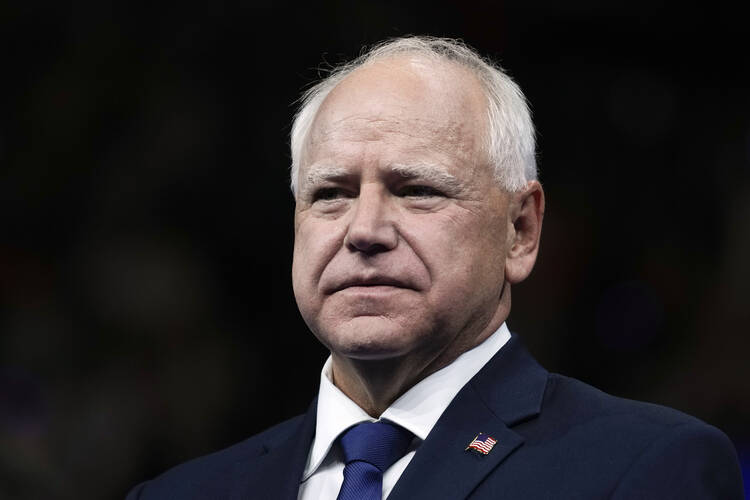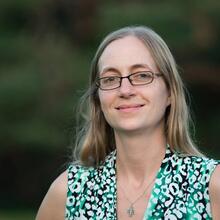Minnesota’s Governor Tim Walz has been widely viewed as a “safe” pick for the Democratic presidential ticket, and it is easy enough to understand why. Vice President Kamala Harris sees the benefit of choosing a running mate who looks solid and drama-free, with a nice family and a fishing license. Mr. Walz’s relative obscurity may be an asset, since it leaves Donald J. Trump with little material for his infamous taunts. Mr. Walz is known as a tax-and-spend Democrat who inherited a budget surplus and spent a lot of money on education, environmental initiatives and social services. That is a good look for the Democratic Party right now.
Mr. Walz raised two children with his wife Gwen and presents himself as enthusiastically pro-family. Mr. Walz has declared his desire to make Minnesota “the best state in the country for kids to grow up,” and by some measures, he has done well. Minnesota has a generous child tax credit and offers free breakfasts and lunches for all school children. The Twin Cities boasts a splendid park system that makes it easy to enjoy Upper Midwestern beauty with kids.
As a Minnesota mom, I find much to like in this. I worry about the state’s fiscal trajectory, but not having to pack lunch for five boys each morning has been a huge help to me over the past year. Last year, I would take my kids to school 20 minutes early and sit with them in the cafeteria while they ate, just chatting, quizzing them on spelling words or hearing about what was planned for the upcoming day. It was a lovely habit that we would never have gotten into but for the free breakfast.
Mr. Walz loves to talk about Minnesota as a place where everyone can enjoy the simple pleasures: natural beauty, free public facilities, lunch with friends. In many ways, it isthat. In his mind, it is all about decent people taking care of each other, like they did in rural Nebraska where he spent his boyhood. I suspect he likes to think of himself as someone who took that small-town decency and scaled it up, first to a state and in the future, perhaps to the whole nation. The appeal is obvious. There is something beautiful about just deciding, as Mr. Walz did, that hungry schoolchildren should simply be fed.
Minnesotans, however, are not always as good as we could be about caring for our own. It is not because Mr. Walz has been an ineffective governor. In some ways, he has been too effective. Two concerns particularly stand out. Mr. Walz has shown that he is unwilling to protect many of our most vulnerable citizens, especially the unborn or very recently born. And he has been both slow and reluctant to recognize the Catholic principle of subsidiarity, which has placed Minnesota’s religious schools and institutions in a precarious position. “Scaling up” small-town decency can be good—but not if it means that sprawling state programs smother effective local or grassroots organizations.
Mr. Walz’s position on abortion has been clear and uncompromising throughout his political career. He wants it to be available to anyone, at any time, for any reason. Mr. Walz has stripped all state funding from crisis pregnancy centers and removed protections for infants born alive after an attempted abortion. He has gone out of his way to remind residents of other states that they are welcome to come to Minnesota to end the lives of their unborn children, and indeed, abortions in Minnesota rose by nearly 40 percent in the past few years. Amid a hard national conversation about the sorts of legal protections we can provide for the youngest Americans, Mr. Walz’s answer is unambiguous: none.
Other areas of disagreement could be mentioned: euthanasia, artificial reproductive technologies and gender ideology. It is obvious that Mr. Walz does not hold a Catholic view of the human person or share a Catholic perspective on how human dignity should best be protected. But this is especially concerning given his second shortcoming: a reflexive hostility to faith-based institutions. Mr. Walz struggles to see private religious institutions as a salutary part of a healthy social fabric.
He worked for years as a public schoolteacher and is a strong advocate for public education. As one would expect, Mr. Walz opposes school choice initiatives, preferring a one-system-fits-all approach to one that would give families options. That is not surprising given his background, but Mr. Walz’s opposition to faith-based institutions cannot be fully explained by his support for teacher’s unions or public education generally. He has gone out of his way to exclude religious schools from participation in a statewide program designed to help high school students earn college credits. His party in Minnesota has recently pushed for equal rights legislation that prohibits discrimination on the basis of “race, color, national origin, ancestry, disability, or sex—including pregnancy, pregnancy outcomes, gender identity, gender expression, and sexual orientation.” Religion was very conspicuously left unmentioned. Religious groups in Minnesota have had to become vigilant about scrutinizing new legislation and being prepared to sue if their institutional autonomy is not protected.
Also of grave concern, Mr. Walz made it clear during the Covid-19 pandemic that he prioritized citizens’ freedom to get haircuts, eat at restaurants and stroll through shopping malls above their right to worship. Religious groups, following the courageous leadership of Archbishop Bernard Hebda of St. Paul and Minneapolis, had to threaten civil disobedience before Mr. Walz would even engage them in a serious conversation. In the end, a compromise was reached, something Mr. Walz has been willing to do in the face of staunch resistance from religious groups. But it is clear that he would prefer that their activities be tightly circumscribed and subjected to greater state oversight.
Catholic social teaching tells us that this is not the best way for communities to band together and care for one another. Churches matter. Community organizations—including religious ones—matter. Subsidiarity is important because grassroots organizations tend to have a clearer understanding of the needs of the people they serve and alsobecause it respects the freedom and dignity of the human person. We need to be free to love and serve each other, in accord with our own consciences and convictions. Some of Mr. Walz’s actions as governor have betrayed that principle.
In many ways, Catholic life in Minnesota is quite wonderful. We have a rich network of parishes, institutions and Catholic schools that have been serving the region for nearly two centuries. Ironically, one of the bestthings about Mr. Walz’s tenure as governor is the opportunity it has given the priests and prelates of this state, along with other religious leaders, to band together and remind us how important it is to protect those institutions and our right to worship God. They have made me proud to be a Minnesota Catholic. Having said that, I would prefer to see religious organizations preaching the Gospel and serving people in need, not fighting the state for the right to do those things.
After some politically turbulent years, many Americans are eager for a more moderate and prudent form of governance. Mr. Walz has a certain folksy charm and can look like a consensus-builder, but in reality, he and his party have been quite happy to take advantage of a one-seat congressional majority to push a divisive cultural agenda, threatening the autonomy of religious organizations that were feeding children lunch long before Mr. Walz devised his popular program. Let us hope that the Democrats can appreciate the best features of Tim Walz’s public-spirited vision, with a stronger appreciation of the role grassroots organizations can play in reaching the goal.








